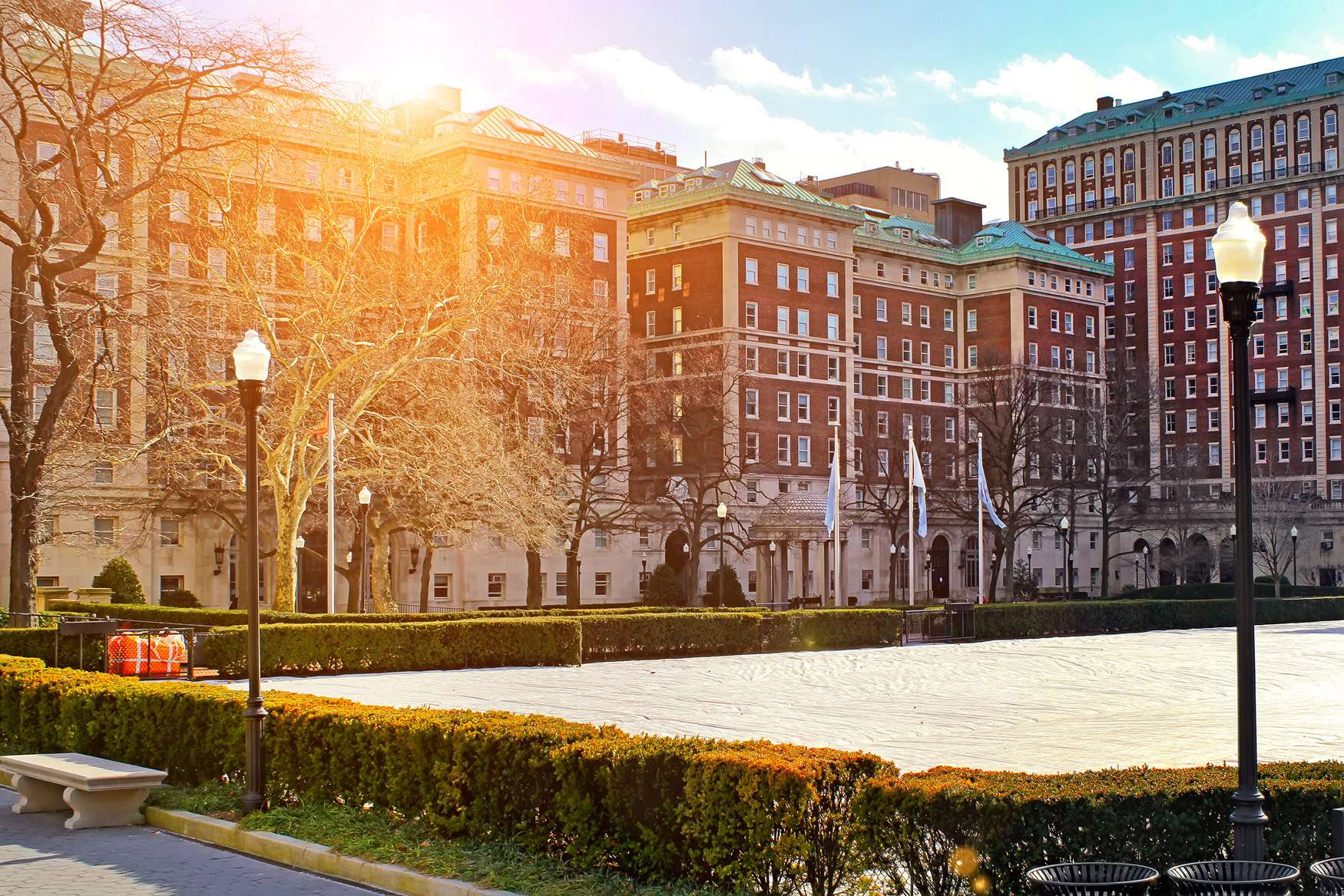5 Things to Know Before Applying to Columbia University
November 22, 2017 :: Jacob Allison
New York’s Columbia University ties with Stanford and MIT for 5th place in this year’s US News and World Report Best College Rankings.
Columbia’s ranking is unchanged from last year, and has consistently been in the top ten rankings for several years due to its Ivy League status, access to industry leaders and internships through its location in New York City, and opportunities for undergraduates to explore entrepreneurship during their time at Columbia.
>> Recommended Reading: How to Extract the Most from the New York College Experience
1. New York, New York! Columbia’s greatest asset.
According to our college consulting experts, Columbia’s admissions committees are on the lookout for application essays that mention unique and specific ways in which applicants plan on utilizing the school’s location in the heart of New York City. For business school applicants, this could mean talking about how you plan on interning at a specific investment bank like JPMorgan or Goldman Sachs. For engineering applicants, telling the adcoms how you plan on utilizing an internship at a firm like AECOM or Thornton Tomasetti to develop industry connections and further your career will demonstrate that you’ve done the proper research into how Columbia’s location in New York City can uniquely help you.
Additionally, many major industry societies hold conferences and events in the Big Apple. Applicants who have done their research will tell admissions committees about which specific industry events they’re going to take advantage of for networking and career advancement.
2. Making plans for internships in your time at Columbia.
Being based in New York City, Columbia offers students in every undergraduate school an unparalleled amount of opportunities for internships and career advancement. Applicants should spend some time researching internship opportunities in their desired field of study through Columbia’s Center for Career Education (CCE), which provides counseling, on-campus recruiting, and even funding for unpaid internships.
Once you’ve checked out CCE’s webpage, you’ll be prepared to tell the adcoms about the specific internships you plan on securing during your time at Columbia and how they’ll prepare you for your career.
3. Columbia has great resources for entrepreneurial development.
Have a great idea? Want to develop a startup? For undergraduate applicants who have a passion for invention and entrepreneurship, Columbia offers unique resources. Students can sharpen their entrepreneurial skills at the Columbia Organization of Rising Entrepreneurs (CORE), even bring a startup to market through Columbia’s Technology Ventures after graduation.
If you’ve got a great idea or plan to start your own company some day, let the admissions committee know how you specifically plan on utilizing Columbia’s entrepreneurial resources to help you on your journey. The more detailed and specific your plan is, and the more you weave why you’re applying to Columbia into your story, the more competitive your application will be.
4. Get to know Columbia’s “Core Curriculum”
Like many undergraduate programs, Columbia requires all of its undergraduate students to complete a number of general education requirements. What sets Columbia apart, however, is that it places a particular focus on making sure all of its undergraduates are well versed in what can be called a solid “classics” education. This involves study of western philosophy, civilization, foreign language and literature in small class sizes of around 22 students. Columbia’s application supplemental questions reveal how much the school values its “Core Curriculum” by asking applicants to list the titles of books, publications, films, and plays that the applicant has consumed in the previous year.
This may seem like a throwaway question, but these lists should be carefully curated and should demonstrate to the adcoms that the applicant’s tastes align with that of the university (less Nicholas Sparks, more Plato!).
The “Core Curriculum” course list can be found here.
5. Applying to Columbia
Columbia’s undergraduate schools now utilize the Common App and the Coalition App for the majority of its application. You can find Admissionado’s tips for acing the Common App essays here and information about the Coalition App here. In addition to the Common App and the Coalition App, Columbia has an application supplemental that gives applicants an opportunity to demonstrate how Columbia fits into their plans more specifically. We think answering these supplemental questions strategically is essential to a competitive application.
- The first four supplemental questions are the lists of books, journals, plays, and music you’ve consumed in the past year. As mentioned above, these lists should tell the adcoms something about your specific intellectual agenda and interests, and should align with the caliber of Columbia’s “Core Curriculum.”
- The second set of questions asks you what you specifically value about Columbia and how your past experiences have prepared you to succeed in your field of study. The answers to these questions will tell the adcoms the most about how you’re a great fit for Columbia and how much research you’ve done on Columbia’s specific resources to help you succeed after graduation. The deeper you delve here into specific courses, clubs, organizations, and experiential learning opportunities, the more competitive your answer will be.
Columbia’s acceptance rate of 6.9% is one of the lowest in the Ivies, with only Harvard (5.8%) and Yale (6.7%) being more selective. That doesn’t mean that getting accepted to Columbia is impossible, but it does mean that in addition to excellent grades and SAT/ACT scores, an applicant has to take advantage of every opportunity in their application to differentiate themselves from the pack and demonstrate that they’ve done extensive research into why Columbia is the best place for them.





